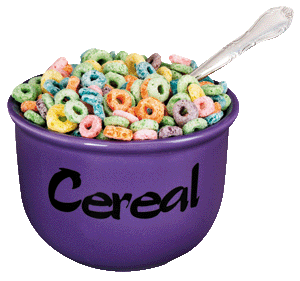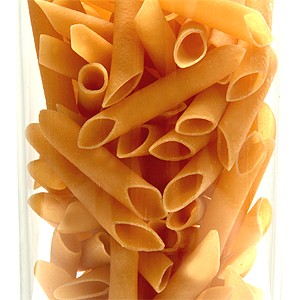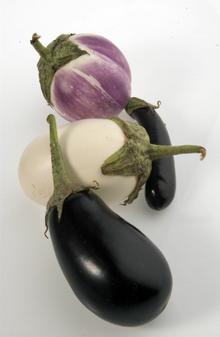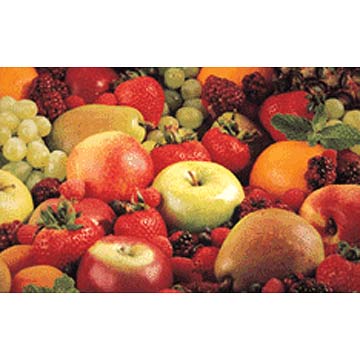Try adding papaya to your diet; it has many health benefits that will improve your overall health.
If you are like me you've probably eaten a papaya without giving a second thought to the benefits of the papaya you're eating. You've probably just savored its sweet taste and butter-like consistency and left it at that. Sure, you now that papaya is a fruit; you rightfully assume it's good for you, but know that the benefits of eating papaya go far beyond the generic boost of vitamin C.
Papaya Contains Antioxidants:
One of the benefits of eating papaya is that it helps to prevent cancer. Papaya is a rich source of antioxidants that the body needs to fight against cancer-causing cells. Vitamin C, E and beta-carotenes are antioxidants that prevent all kinds of cancers. So adding a daily serving of papaya to your diet may lessen your risk of developing cancer.
Papaya is used to Treat Digestive Disorders:
Papaya is a great source of proteolytic enzymes that are very important in digesting food. The most important of these proteolytic enzymes found in papaya is papain. Papain breaks down proteins in food, allowing for better digestion. Papain is used in prescription of digestive enzymes to treat individuals with cystic fibrosis or pancreatic conditions; producing for them what the body cannot produce naturally. Eating papaya is also a benefit because papain taken orally treats less serious digestion disorders such as bloating and chronic indigestion. In these cases papain is extracted, dried and sold as tablets.
Papaya Boosts Male Virility:
Another great benefit of papaya is to boost male virility. Papaya contains an enzyme called arginine which is known in the medically community to boost blood flow around the penis. Arginine boosts nitric acid in the body to relax the muscles surrounding the blood vessels tat supply the penis. These blood vessels then dilate and increase blood flow. A more concentrated form of arginine is used to treat erectile dysfunction.
Papaya Prevents Premature Aging:
Many alternative medical practitioners believe that one of the benefits of papaya is to control premature aging. Papaya helps the body to properly digest food and when the body digests all the nutrients it needs, the body will remain vital for a long time.
Papaya is used as a Cleanser:
Drinking a quarter pint (150ml) of papaya juice, cucumber juice and green bean juice in alternating hours for 12 hours can be a benefit to your colon. These juices work as potent natural cleansers when combined.
Papaya is also rich in fiber, which travels through the body and binds itself to cancer-causing toxins in the colon. The fiber in papaya flushes out the toxins in the colon and so one of the benefits of papaya is that it helps prevent colon cancer especially, due to its antioxidants and its fiber content.
Papaya Prevents Heart Attacks and Strokes:
The antioxidants in papaya prevent cholesterol from oxidizing. When cholesterol becomes oxidized it forms plaque in the blood vessel walls that can eventually build up and cause a heart attack or stroke.
Papaya is magical fruit for your health and skin:
Papaya is magical fruit for your health and skin. It is an excellent source of proteolytic enzymes that are very significant in digesting meal. You will get Papain from the enzymes. As a matter of fact, it is effective to break down proteins in your food and treat cystic fibrosis. Therefore if you have problem with digestion system, you can eat it.
In a daily health, it works wonderfully on supporting the immune system to prevent flu and colds. It is good to treat digestive disorders. Furthermore, it also helps in preventing acne since when papaya is used as a face pack it can open the pores of face. It provides great amount of vitamin C, vitamin A and vitamin E. they are extremely great antioxidants that is beneficial for your health.
Papaya provides Papain that is effective to help breaking up dead skin. It will make your skin fresher, cleaner and more glowing. It is an excellent source of fiber that is really beneficial to decrease high cholesterol levels. It helps avoid the oxidation of cholesterol therefore it becomes great herbal medicine to treat stroke, heart attacks and atherosclerosis.
For health in marriage, consuming papaya is effective to increase male virility. It can be consumed to heal colon cancer. Many advantages you can get through papaya, therefore you should balance your diet with this fruit. As a matter of fact beta-carotene, vitamin E and vitamin C are effective to heal inflammation. It is also good for treating rheumatoid arthritis, asthma and osteoarthritis. Get many advantages by consuming papay.
If you are a diabetic and find that every time you eye that delicious mango or banana, you are met with frowns from your relatives, then there is just the fruit for you in the form of papaya. With its deep orange pulp and a butter-like consistency, this fruit of the Gods it is a rich source of antioxidant nutrients such as carotenes, vitamin C and flavonoids and what is more it also happens to be the only fruit that does not kick up your sugar levels after consumption.
A native of southern Mexico, Central America and northern South America, the papaya or pawpaw as it is called on the islands happens to be an ideal fruit that should make it to the menu of every diabetic individual. A bowl of thinly cut slices of the fruit before breakfast is an ideal way to start your day.
Nutrient count
Papaya is rich in carotenes, vitamin C, flavonoids, the B vitamins, folate and pantothenic acid as well as the minerals, potassium and magnesium; and fiber.
How does papaya benefit diabetics?
Papaya has a low glycemic index of 59 and hence is not going to play any role in shooting up your blood sugar levels. Glycemic index is the measurement that indicates how fast a particular food increases your blood sugar levels. Fruits like mango, banana and grapes are high glycemic index foods as they instantly impact blood sugar levels.
However papaya is different and also helps in better digestion of food due to the presence of an enzyme called papain.
Benefit of Watermelon
Watermelons: - are low in calories and very nutritious. Watermelon is high in lycopene, second only to tomatoes. Recent research suggests that lycopene, a powerful antioxidant, is effective in preventing some forms of cancer and cardiovascular disease. According to research conducted at the University of North Carolina at Chapel Hill, men who consumed a lycopene-rich diet were half as likely to suffer a heart attack as those who had little or no lycopene in their diets.
Watermelon is also high in Vitamin C and Vitamin A, in the form of disease fighting beta-carotene. Research also suggests that the red pigmented foods provide this protection. Lycopene and beta-carotene work in conjunction with other plant chemicals not found in vitamin/mineral supplements. Potassium is also available, which is believed to help control blood pressure and possibly prevent strokes.
Benefits and Features of Beetroot
- Beetroot provides a good source of anthocyanadins, a natural antioxidant that contributes to its deep red colour.
- Extract is a natural source of vitamins and minerals.
- Beetroot is used traditionally as a blood building food.
- Beetroot may aid the natural process of elimination and support detoxification processes.
- Beetroot has liver, spleen, gall bladder and kidney cleansing properties.
- Beetroot is particularly rich in Vitamin C, calcium, phosphorus and iron.
- Each capsule provides approximately 1-2mg of elemental iron.
- The iron contained in beetroot is organic and non-irritating and will not cause constipation. Beetroot is useful in acidosis due to it being rich in alkaline elements
- Vacuum packed to enhance stability and shelf life.







